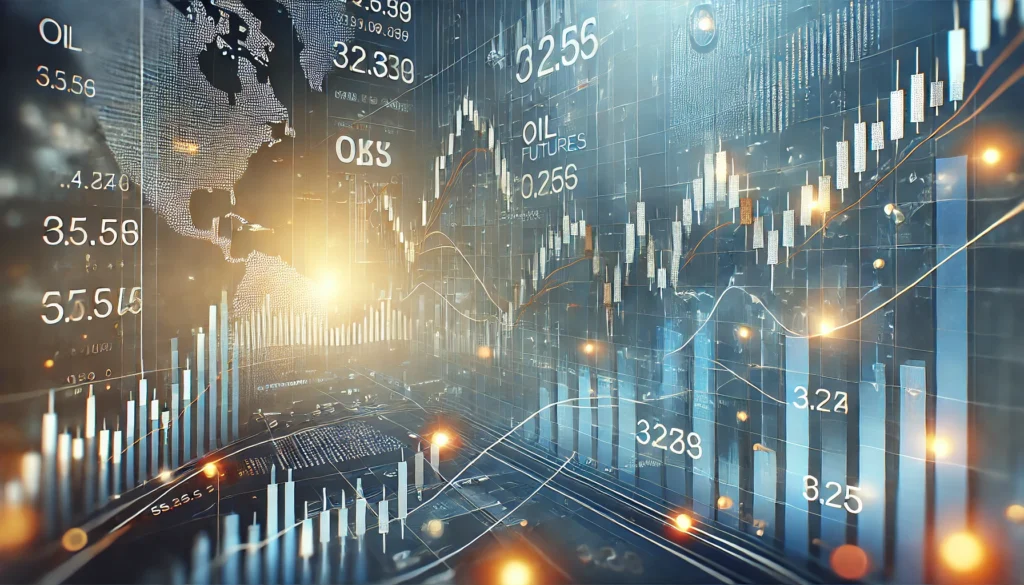How Does Futures Trading Work?
At its core, futures trading involves predicting whether the price of an asset will rise or fall by a specified date. When you enter a futures contract, you agree to buy or sell the underlying asset at a fixed price, regardless of the market value when the contract expires.
For example, if you believe oil prices will increase, you could purchase an oil WTI futures contract. If the price rises, you can sell the contract at a profit. However, if the price falls, you may incur a loss.
Key Components of Futures Contracts
Every futures contract includes several essential elements:
- Underlying Asset: The item being traded (e.g., crude oil, wheat, or a financial index).
- Contract Size: The quantity of the asset specified in the contract.
- Expiration Date: The date when the contract must be settled.
- Price: The agreed-upon value for the asset.
- Margin Requirement: A deposit required to open and maintain a position in the futures market.
Why Should You Consider Futures Trading?
For those planning for retirement or seeking new investment avenues, futures trading offers several potential benefits:
- Diversification: Futures allow you to invest in a variety of asset classes beyond traditional stocks and bonds.
- Hedging: You can protect your portfolio from adverse market movements by using futures to offset potential losses.
- Leverage: Futures trading allows you to control a large position with a relatively small amount of capital, amplifying potential gains (and losses).
Risks Associated with Futures Trading
While the futures market offers exciting opportunities, it also comes with risks:
- High Volatility: Prices in the futures market can fluctuate rapidly, leading to significant gains or losses.
- Leverage Risk: Using leverage can amplify both profits and losses, making it crucial to manage your positions carefully.
- Complexity: Understanding futures contracts requires familiarity with market dynamics and careful monitoring.
How to Start Trading Futures
If you’re new to futures trading, follow these steps to get started:
- Educate Yourself: Learn about futures trading for beginners through reputable resources, courses, and financial advisors.
- Choose a Broker: Select a reliable broker futures trading platform that aligns with your investment goals.
- Open an Account: Set up a futures trading account and fund it with the required margin.
- Develop a Strategy: Plan your trades by analyzing market trends and setting risk management parameters.
- Monitor and Adjust: Regularly review your positions and adjust your strategy as market conditions change.
Popular Futures Markets to Explore

futures market
Some of the most actively traded futures markets include:
- Commodity Futures: Includes agricultural products (corn, wheat), energy (crude oil WTI), and metals (gold, silver).
- Financial Futures: Covers stock indices, interest rates, and foreign currencies.
- Stock Futures: Allows investors to speculate on the future price of individual stocks or indices.
Futures Trading vs. Traditional Investments
Unlike traditional investments, futures trading is time-sensitive and requires a more active management approach. However, it offers advantages such as increased leverage and the ability to profit from both rising and falling markets.
Is Futures Trading Right for You?
Before diving into the futures market, consider your risk tolerance and financial goals. Futures trading can be a valuable tool for investors seeking diversification and hedging opportunities, but it also demands careful planning and ongoing education.
Final Thoughts
The futures market can be a powerful avenue for expanding your investment portfolio and securing your financial future. By understanding the basics of how to trade futures, you can confidently explore this dynamic market while managing risks effectively. Whether you’re interested in futures crude, stock futures, or other asset classes, a well-informed approach will enhance your trading success.



